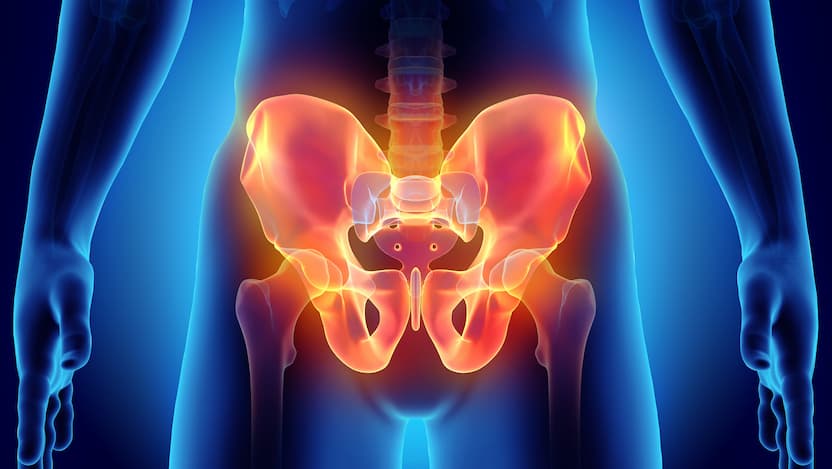Stress from the pandemic may be harming your pelvis

As a urogynecologist and co-director of the Center for Pelvic Health, I specialize in female pelvic medicine and reconstructive surgery. Here I answer some common questions related to pelvic health and explain how pandemic-related anxieties can affect pelvic health.
What is the pelvic floor and why is it important to take care of it?
The pelvic floor is a complex of muscles and connective tissue structures that support and stabilize the pelvic organs. These include the bladder, urethra, bowel, uterus and vagina. The pelvic floor plays a very important role ensuring that pelvic organs function properly and performs sexual functions, along with the storage and emptying of urine and feces.
Who is affected by pelvic floor disorders?
Women are at much greater risk for pelvic floor disorders than men. The greatest damage to the pelvic floor usually happens during a vaginal birth, so pregnancy and vaginal delivery are significant risk factors. Pressure within the abdomen and pelvis — from chronic constipation, chronic cough, chronic straining during heavy lifting — can contribute to these problems. People with connective tissue disorders, like Ehlers-Danlos or scleroderma, for example, or who have undergone pelvic surgery or radiation, are also at increased risk.
Age is another significant risk factor, since people undergo tissue atrophy as they age.
How does a sedentary lifestyle affect the pelvic floor?
Prolonged sitting, especially in a "wrong" position, can negatively affect the pelvic floor. For example, weakening may happen when sitting in a slouched or relaxed position, or, sitting in another strained position may cause muscle contraction and tightness and result in pelvic pain and lower back pain. Prolonged sitting can potentially damage nerves that can contribute to painful disorders.
Have you had patients complain of pelvic floor issues during the pandemic?
Stress and anxiety can lead to tightening of the pelvic floor muscles, which can result in pain or high-tone pelvic floor dysfunction. Some people have dubbed this phenomenon the “pandemic pelvis.” We know the pandemic has been a high-stress period, and it could contribute to exacerbation of these symptoms in people more prone to anxiety and stress.
What are some signs that your pelvic floor might be in trouble?
When people start noticing leakage of urine with coughing, sneezing, exercising, or subtle small movements, or people experience urinary urgency, this could be a sign to be seen by a doctor. Other warning signs include difficulty emptying the bladder or bowels, losing gas or stool when not desired, or feeling pressure or pain in the pelvic or vaginal area including during intercourse.
If you have digestive problems that persist or often recur, experience frequent constipation or diarrhea, or both, it is time to visit a doctor.
What are some things you can do to help strengthen or protect your pelvic floor?
With people who experience vaginal birth, the more prepared they are, the better. I would compare it to a professional athlete — they recover better from injuries than a non-athletic person because they’re conditioned and prepared.
People can strengthen their pelvic floor muscles before and during pregnancy by doing pelvic floor exercises. During the delivery, pelvic floor muscles should be protected as much as possible and properly repaired if a damage occurs.
There is no gold standard for pelvic floor exercises, but we generally recommend people do kegel exercises three times per day, with the goal to perform 10 muscle contractions that last 10 seconds each.
We know that exercise keeps us healthy, but we usually ignore the pelvic floor muscles. Just like fitness coaches, there are specialized physical therapists (PTs) for pelvic floor muscles, and those people are the best resource to guide patients through this process.
At the University of Chicago Medicine, we have a multispecialty group within our Center for Pelvic Health, including urogynecologists, urologists, colorectal surgeons, pelvic floor physical therapists, gastroenterologists, minimally invasive gynecologists, and more.

Juraj Letko, MD
Juraj Letko, MD, is a urogynecologist — an obstetrician and gynecologist with advanced training in female and reconstructive surgery. Dr. Letko treats a wide range of conditions, including pelvic organ prolapse, urinary incontinence, urinary infections, and painful, irritative voiding disorders.
